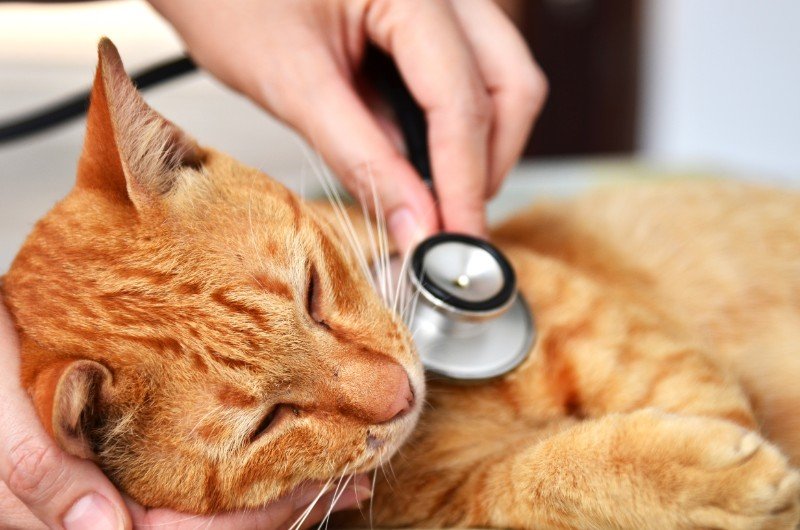
If your cat is suddenly making noise while breathing that you aren’t used to hearing, you may be understandably concerned. While the occasional kitty sneeze or sniffle can be adorable, many times changes in breathing noises can indicate a problem.
So how is a pet owner to know whether a cat-sized wheeze is just a one-off or something more serious like feline asthma? Thankfully, you aren’t expected to have all the answers. This is where your friends at West Park Animal Hospital come in.
Feline Asthma and Other Breathing Problems
There are many possibilities when it comes to reasons why your cat’s breathing may sound a little different than normal. Some problems are more common than others, and many can look similar without further investigation.
Some of the more common causes of changes in breathing we see in cats include:
Cardiac problems — A congenital heart condition or one that develops over time such as hypertrophic cardiomyopathy can lead to fluid build up in the lungs. This can result in noisy or labored breathing and sometimes coughing or retching.
Feline asthma — Just like in people, some cats’ lower airways can become inflamed when triggered by allergens, resulting in wheezing and difficulty breathing.
Laryngitis — Infectious processes, trauma, and even tumors can cause inflammation in the back of the throat, resulting in breathing changes.
Lung disease — A problem in the actual lungs such as pneumonia can certainly lead to heavy, noisy breathing.
Obesity — Increases in weight can lead to increased respiratory noise and even apnea, especially in animals that may already have narrowed airways, such as brachycephalic breeds like Persians.
Nasopharyngeal polyps — Any tumor growing in the back of the throat can lead to increased respiratory noise. In cats most commonly these are benign nasopharyngeal polyps.
Parasites — Unwelcome parasite infections like feline heartworms and lungworms can wreak havoc on the lungs, resulting in breathing abnormalities.
Upper respiratory infection — Perhaps the most common reason we see cats, many bacterial and viral infections can cause upper respiratory symptoms such as sneezing, congestion, and watery eyes in the feline species.
When to Call Us
When you notice a little wheeze or sneeze in your cat, it can sometimes be hard to decide whether or not it warrants a trip in to see us. While the occasional hack or snore can be normal, please call us if:
- The abnormal noise(s) persist more than a few hours
- The noise(s) are new
- They are accompanied by ocular or nasal discharge
- Your cat’s breathing is labored
- Your cat is panting like a dog
- The symptoms are accompanied by abnormal behaviors like hiding, not eating, or decreased activity
- Your cat is coughing
- The gums and/or tongue appear blue or gray
- Your pet appears to be in distress
You can also monitor your pet’s resting respiratory rate at home. This can be an important tool when deciding if your pet needs immediate attention or not, and can help us to hone in on a diagnosis.
Breathing noises in cats can sometimes be normal, but it is always best to err on the side of safety. With an accurate diagnosis, even more serious problems such as feline asthma are manageable. So when your cat sniffles, sneezes, or coughs, don’t hesitate to reach out to us. The sooner we diagnose the problem, the sooner we can get your cat back to normal.
The post Sneezy, Wheezy, and Snorey: Feline Asthma and Other Cat Breathing Noises appeared first on West Park Animal Hospital Blog.

